Sustainable Development Goal: Goal 13: Climate Action
Goal 13: Climate Action
1 December 2022
Governments, households, and firms across Europe are grappling with the energy and cost-of-living crisis. The recent decline in natural gas prices has, however, fuelled hopes that massive gas shortages, rationing, and industrial shutdowns can be avoided.
6 July 2022
EAPD will present recent research explaining how the current series of crises—individually and in combination—are likely to affect the ability to deliver the promises included in the 2030 Agenda. The research analyzes the transmission of these crises through seven channels and discusses policy implications.
1 June 2022
The war in Ukraine will significantly impact global efforts to deal with the climate emergency by driving up energy prices and placing energy security at the heart of policy making in many countries.
18 May 2022
Global growth prospects have weakened significantly amid the war in Ukraine, rising energy, food and commodity prices, soaring inflation and tightening monetary policy stances by major central banks.
8 July 2021
Policies that aim at facilitating the uptake of the lithium-ion battery without compromising environmental impacts should create incentives at various stages of the battery value chain, including the closed-loop recycling system.
25 January 2021
The pandemic reached every corner of the world, infecting more than 90 million and, so far, has killed close to 2 million people worldwide. The crisis responses, however, entailed difficult choices between saving lives and saving livelihoods, between speed of delivery and efficiency, and between short-term costs and long-term impacts.
1 December 2020
The world registered a record reduction of energy-related CO2 emissions in the first half of 2020. However, this year’s reduction is projected to be a one-time dip, and only has an infinitesimal impact on the buildup of atmospheric CO2
18 February 2020
While a decade of rapid expansion of the sharing economy increasingly enable better utilization of assets, it shows little signs of delivering fair and equitable welfare gains for all participants in the sharing economy. Instead it has generated unchecked externalities and unintended consequences.
3 February 2020
According to the WESP 2020, sluggish global growth threatens sustainable development; 1 in 5 countries will see per capita incomes stagnate or decline this year, notably in Africa, Latin America and parts of Western Asia; across the world, many policies continue to encourage the use of fossil fuels




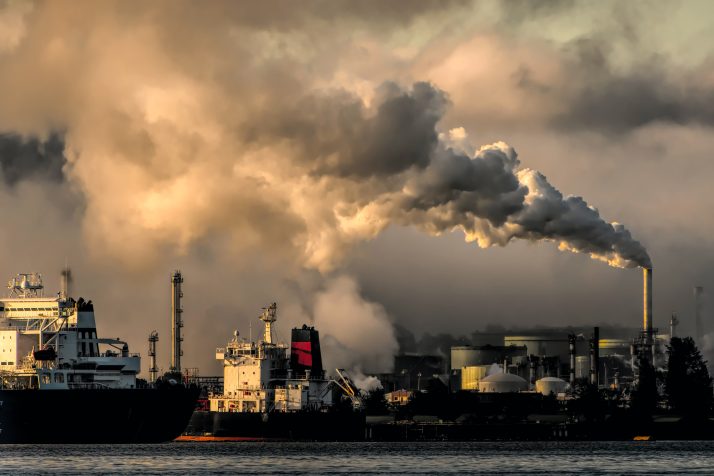



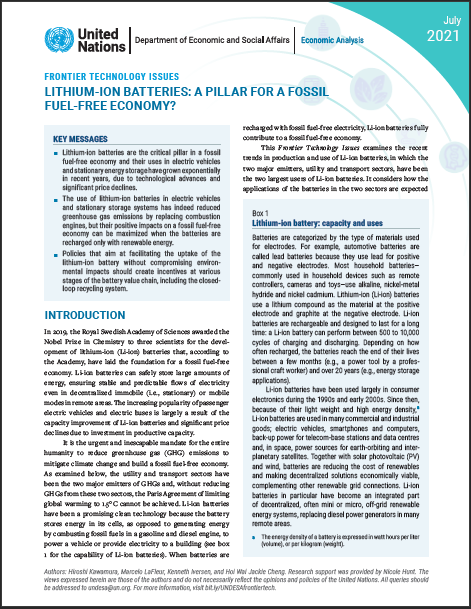

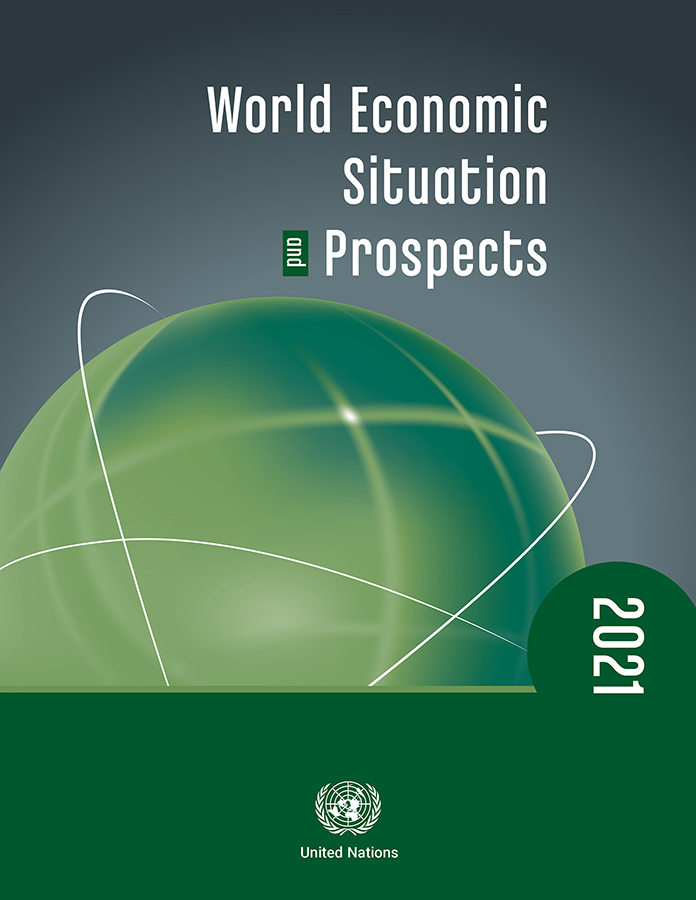


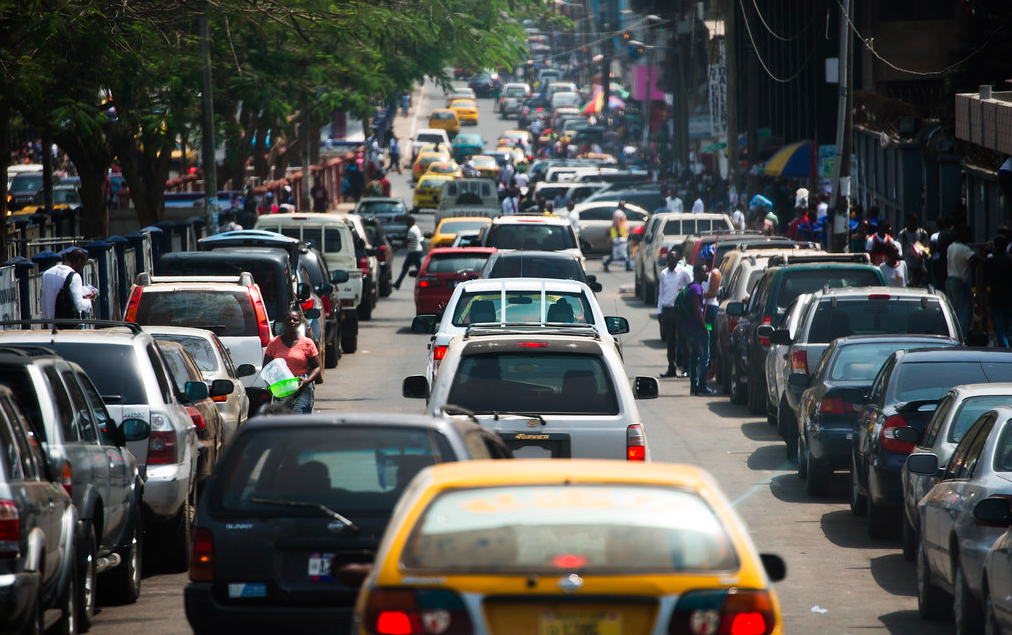
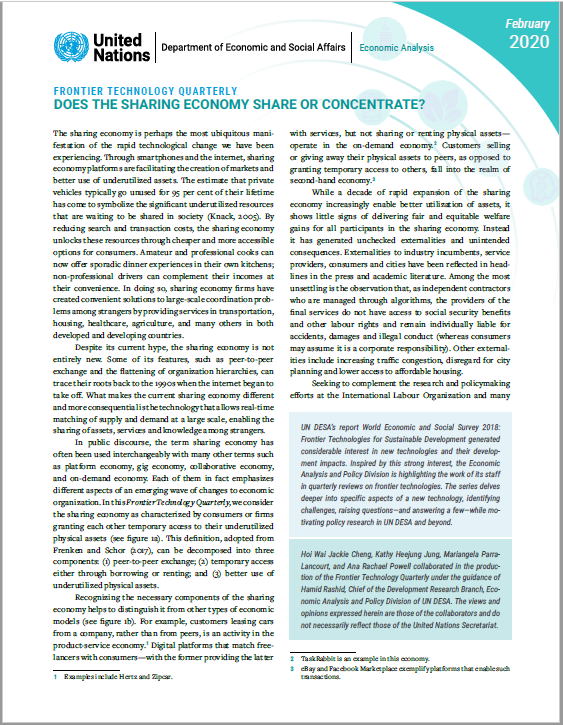

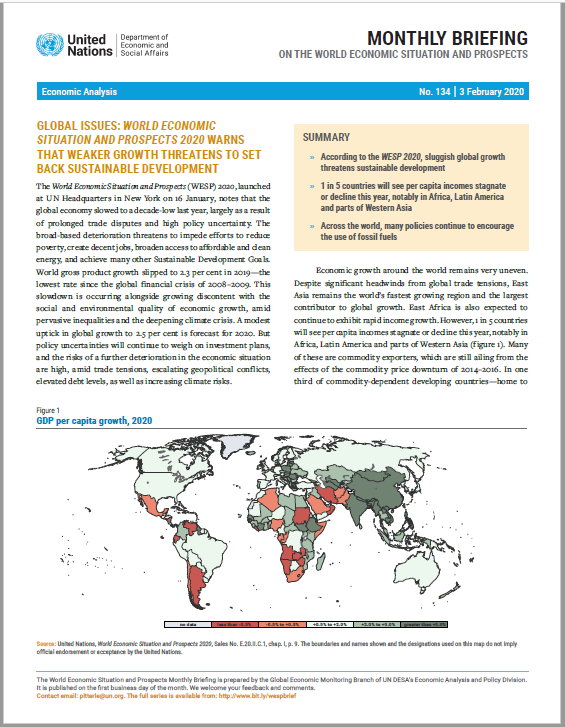
Follow Us